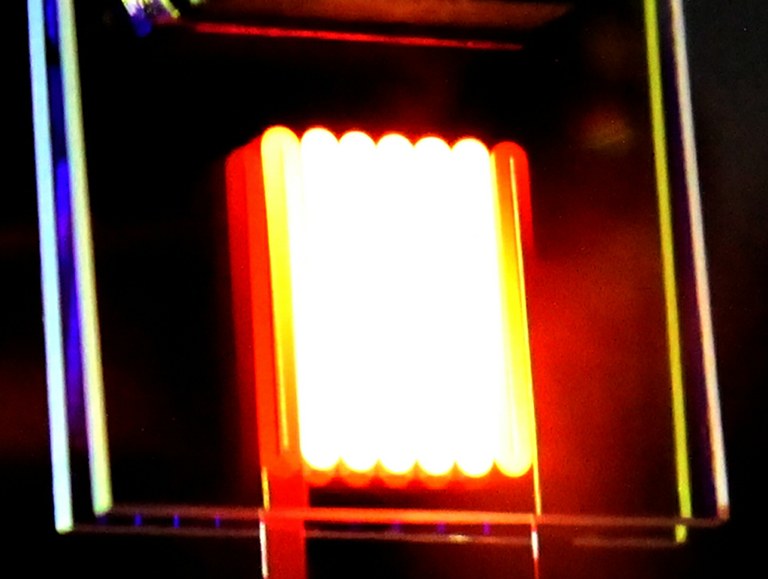
This photograph shows a new technology that uses a special filter to improve the efficiency of incandescent lighting and could bring more efficient solar energy. (MIT Image/Ognjen Ilic)
Using optical filter nanotechnology, visible light is allowed to pass through the filters but reflect the infrared heat back at the incandescent filament. This recycled energy is then reabsorbed by the filament and emitted as visible light, drastically increasing the efficiency of the incandescent light bulb.
As points of reference, traditional incandescent bulbs operate at about 2-3% efficiency (very inefficient), with most of the input energy converted to heat. In contrast, LEDs operate at about 13% efficiency. By using the optical filters, MIT researchers were able to double the efficiency to 6.6% in their working proof-of-concept incandescent bulb. While this is still only half the efficiency of LEDs, the researchers calculate that it is possible to boost the efficiency as high as 40%, which would make incandescents employing this technology over three times as efficient as today’s LEDs.
The next hurdle (in order for incandescents to become practical for aquarists) is to get them to burn at higher color temperatures. Even if this technology never develops into a viable LED replacement, it can still have far-ranging practical value in any application you want to convert wasted heat energy into other forms of useful/desirable energy.
The findings are published in Nature Nanotechnology.










0 Comments